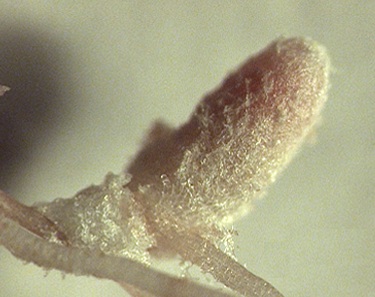This week in PLOS Biology
In PLOS Biology this week, you can read about the evolution of symbiosis, the role of Epstein-Barr virus in disease and the neural correlates of social status in macaques.
Epstein-Barr Virus: a Smoking Gun?
In a new Essay, Bill Sugden examines the evidence that links this ubiquitous human pathogen to cancer and multiple sclerosis. Epstein-Barr virus is notorious for causing multiple kinds of cancer. It has also been increasingly linked to multiple sclerosis. What evidence now supports or can be sought potentially to strengthen this linkage?
Neural Circuitry of Social Hierarchy
In their new research paper, MaryAnn Noonan, Matthew Rushworth and colleagues tease apart the neural correlates of social status. This neuroimaging study reveals that individual variation in brain circuits in structures below the cerebral cortex of rhesus macaques is associated with experience at different ends of the social hierarchy. Read the accompanying Primer.
Symbiosis Plasmids Bring Their Own Mutagen to the Party
The symbiotic bacteria that form nitrogen-fixing nodules in leguminous plants started off as free-living soil bacteria, but how do they make the transition to cohabiting so intimately with plants? Philippe Remigi, Catherine Masson-Boivin and colleagues use an experimental evolution approach to show that stress-responsive error-prone DNA polymerase genes ease the evolution of the soil bacterium Ralstonia solanacearum into a legume endosymbiont by accelerating adaptation of the bacterial genome to its new plant host. Read more in the accompanying Synopsis.



